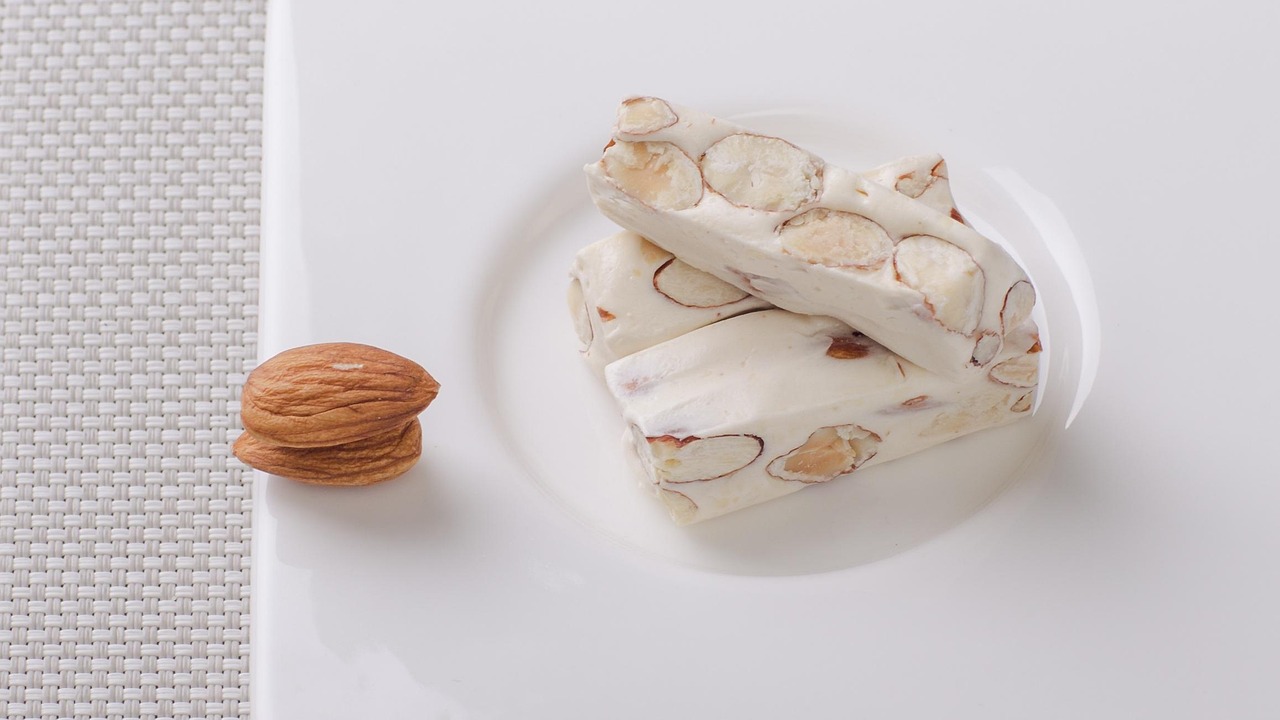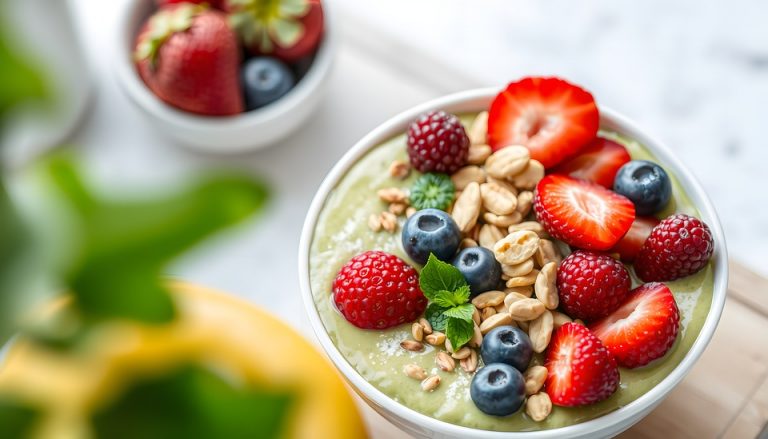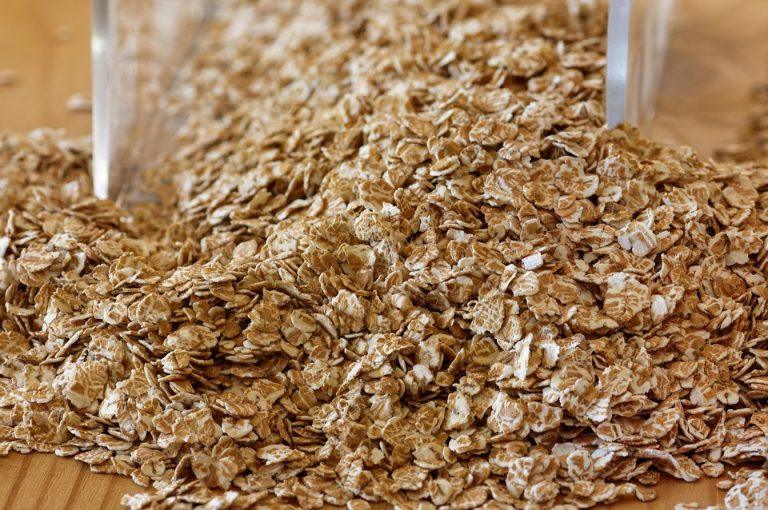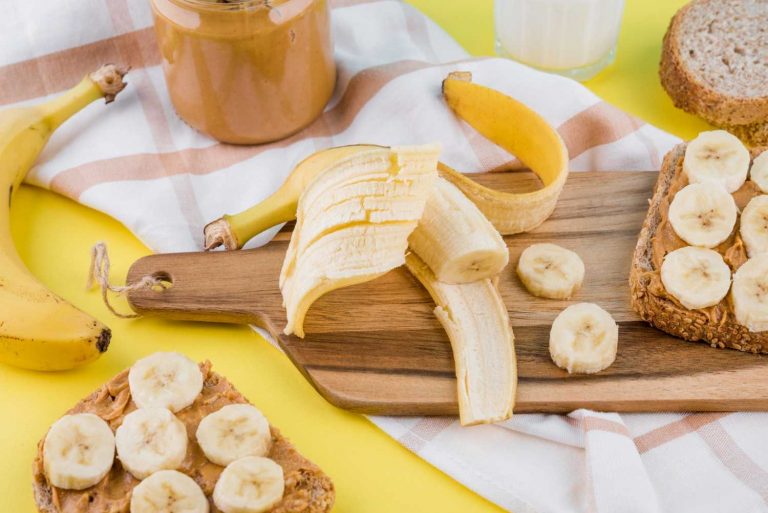Have you ever found yourself tossing and turning at night, staring at the ceiling, and wondering why sleep seems so elusive? You’re not alone! A staggering number of people struggle with sleep issues, and while there are many factors at play, the foods we eat can have a surprising impact on our ability to catch those Z’s. So, let’s dive into some delicious options that might just help you drift off into dreamland tonight.
Contents
1. Almonds
Almonds are not just a crunchy snack; they’re a powerhouse of nutrients that can help improve your sleep quality. Packed with magnesium, a mineral known to promote relaxation, almonds can help reduce insomnia and improve overall sleep quality. A handful of these nuts before bed can be a satisfying way to wind down.
Pros: Almonds are also rich in protein and healthy fats, making them a great option for a late-night snack.
Caveats: Just remember that moderation is key. Too many nuts can lead to digestive discomfort, so stick to a small handful.
2. Kiwi
Kiwis might be small, but they pack a punch when it comes to sleep benefits. Studies have shown that eating kiwi can significantly improve sleep onset, duration, and efficiency. This fruit is rich in serotonin, which helps regulate your sleep-wake cycle.
Example: In a study published in Advances in Nutrition (2016), participants who consumed two kiwis one hour before bedtime reported better sleep quality.
Pros: Kiwis are low in calories and high in vitamins C and E, making them a healthy choice.
Caveats: The tartness of kiwis might not be for everyone, so if you’re sensitive to acidity, you might want to tread carefully.
3. Fatty Fish
Fish like salmon, mackerel, and sardines are not only delicious but also loaded with omega-3 fatty acids and vitamin D, both of which play a role in regulating serotonin. This can help improve sleep quality, especially in those who struggle with insomnia.
Example: A study in the Journal of Clinical Sleep Medicine (2014) found that participants who consumed fatty fish regularly experienced improved sleep quality.
Pros: Fatty fish are also great sources of protein, making them a filling dinner option.
Caveats: If you’re not a fan of fish, you might want to explore other sources of omega-3s, like walnuts or flaxseeds.
4. Oats
Who doesn’t love a warm bowl of oatmeal? Oats are not only a comforting breakfast option but also a great source of melatonin, the hormone that regulates sleep. Eating oats can increase your body’s melatonin levels, helping you to fall asleep faster.
Example: Try a bowl of oatmeal topped with some sliced bananas and a sprinkle of cinnamon for a sleep-promoting treat.
Pros: Oats are high in fiber, which can help keep you feeling full throughout the night.
Caveats: If you’re watching your carbohydrate intake, you might want to enjoy oats in moderation.
5. Turkey
Ah, the classic Thanksgiving food! Turkey is rich in tryptophan, an amino acid that converts to serotonin and then melatonin in the body. This can help you feel sleepy after dinner.
Example: A turkey sandwich or a turkey salad for dinner can be a delicious way to boost your sleep quality.
Pros: Turkey is also a lean source of protein, making it a healthy option.
Caveats: For some, eating a heavy meal too close to bedtime can lead to discomfort, so balance is essential.
6. Chamomile Tea
While not technically a food, chamomile tea deserves a mention for its sleep-promoting properties. This herbal tea has been used for centuries as a natural remedy for anxiety and insomnia. It contains antioxidants that may promote sleepiness and reduce insomnia.
Example: Enjoy a warm cup of chamomile tea about 30 minutes before bed for a soothing bedtime ritual.
Pros: It’s caffeine-free, making it a perfect choice for evening relaxation.
Caveats: If you have allergies to plants in the daisy family, you might want to skip this one.
7. Bananas
Bananas are not just a convenient snack; they’re also a great source of potassium and magnesium, which help relax muscles and nerves. Plus, they contain vitamin B6, which aids in the production of melatonin.
Example: Try a banana with a dollop of almond butter for a tasty and sleep-friendly snack.
Pros: They’re easy to digest and can curb late-night cravings.
Caveats: If you’re sensitive to sugar, keep your portion in check.
8. Cherries
Cherries, especially tart cherries, are natural sources of melatonin. Studies have shown that consuming tart cherry juice can help improve sleep duration and quality.
Example: A small glass of tart cherry juice before bedtime could be just what you need for a better night’s sleep.
Pros: Cherries are also packed with antioxidants, making them a healthy addition to your diet.
Caveats: Watch out for added sugars in some commercial cherry juices.
9. Walnuts
Just like almonds, walnuts are another nut that can help promote sleep. They contain melatonin and omega-3 fatty acids, which can contribute to better sleep quality.
Example: Toss some walnuts in your morning oatmeal or enjoy them as a late-night snack.
Pros: They’re versatile and can be added to various dishes.
Caveats: Again, moderation is key, as nuts are calorie-dense.
10. Spinach
Leafy greens like spinach are rich in magnesium, which plays a crucial role in promoting sleep. Magnesium helps relax muscles and calm the nervous system.
Example: A spinach salad with a light vinaigrette can be a refreshing dinner option that supports your sleep goals.
Pros: Spinach is low in calories and high in nutrients, making it a great addition to any meal.
Caveats: If you’re prone to kidney stones, you may want to limit your intake of spinach due to its oxalate content.
FAQs
1. Can I eat these foods right before bed?
While some of these foods can be enjoyed right before bed, it’s generally best to allow at least an hour for digestion. Heavy meals too close to bedtime can interfere with sleep.
2. Are there any foods I should avoid for better sleep?
Yes! Foods high in sugar, caffeine, and heavy fats can disrupt sleep. Try to avoid these, especially in the evening.
3. How long before bed should I eat?
Aim to finish eating at least 2-3 hours before bed. This gives your body time to digest and can help you sleep better.
4. Do I need to eat all these foods for better sleep?
No, you don’t need to eat all of them! Incorporating a few of these sleep-promoting foods into your diet can help improve sleep quality.
Conclusion
Incorporating these delicious foods into your diet can be a simple yet effective way to promote better sleep. Whether you’re snacking on almonds, enjoying a warm bowl of oatmeal, or sipping chamomile tea, the right choices can make a world of difference in your sleep experience. So why not give it a try tonight? Sweet dreams await!
This article is for educational purposes only and is not a substitute for professional medical advice. Always consult a qualified healthcare provider before making changes to your health routine.
References
- St-Onge, M. P., et al. (2016). “Effects of a high-fat diet on sleep quality and duration.” Advances in Nutrition. Retrieved from https://academic.oup.com/advances/article/7/4/703/2462651
- Wang, F., et al. (2014). “The effect of omega-3 fatty acids on sleep quality: a systematic review.” Journal of Clinical Sleep Medicine. Retrieved from https://jcsm.aasm.org/doi/10.5664/jcsm.4120
- Zisapel, N. (2007). “Melatonin and sleep.” The Journal of Clinical Endocrinology & Metabolism. Retrieved from https://academic.oup.com/jcem/article/92/10/3850/2836640
Get Your FREE Natural Health Guide!
Subscribe now and receive our exclusive ebook packed with natural health tips, practical wellness advice, and easy lifestyle changes, delivered straight to your inbox.





